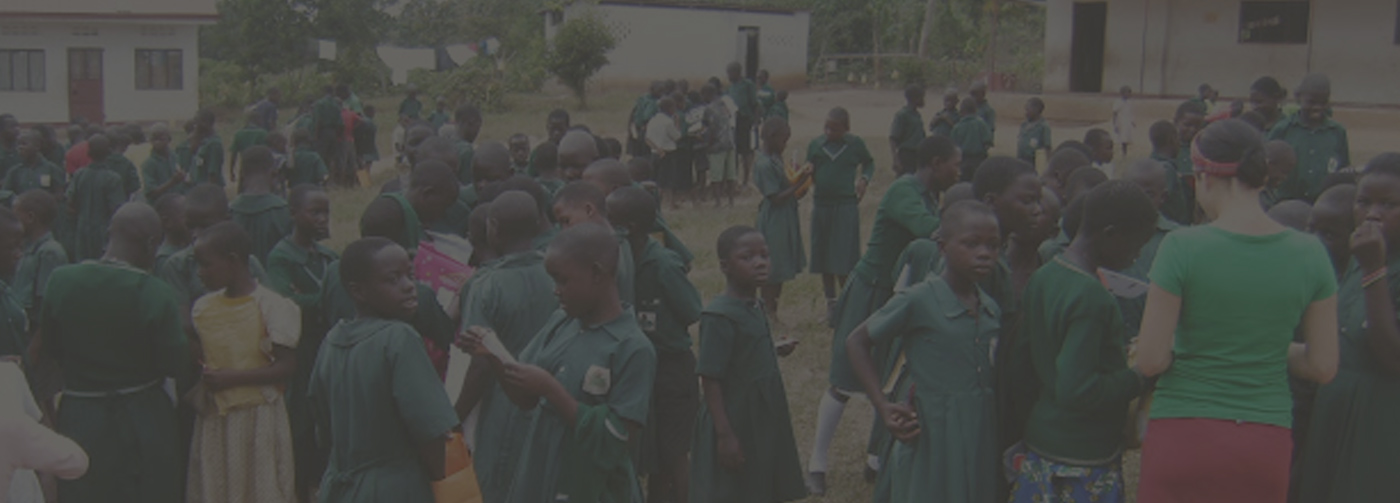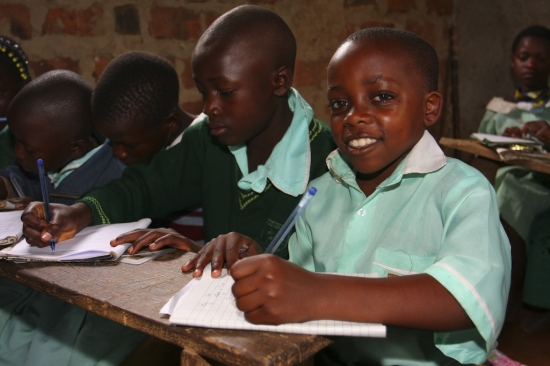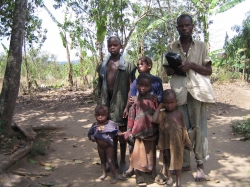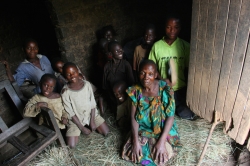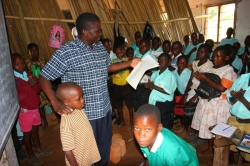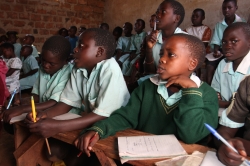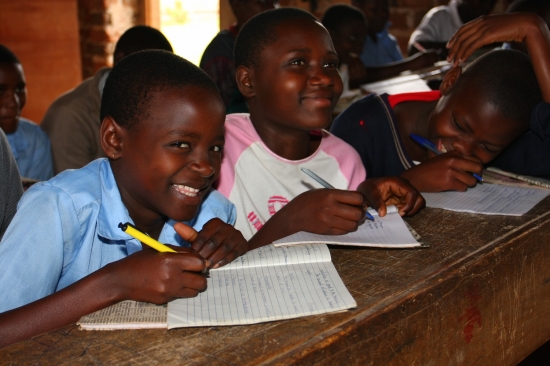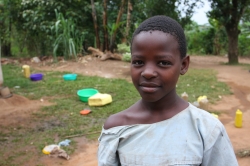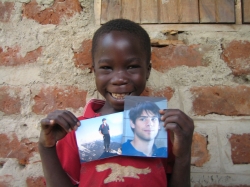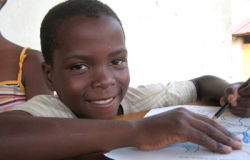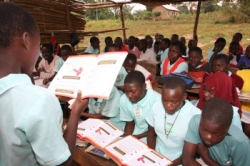Half of Uganda’s population is less than 15 years old. This is due, on the one hand, to the large number of children per family (on average Ugandan women have almost seven children) and, on the other hand, to the fact that many people die at a relatively early age of AIDS. Additionally, medical care in the country remains very poor. We strive to enable as many children as possible to attend school. With a monthly contribution of € or more, you can support a child in Uganda in their education. A personal sponsorship for a child is possible with a guideline amount of € 15 or more. Currently, sponsorships enable around 2,200 children to attend school..
We started the sponsorship program back in 2008 with a group of around 60 children in Zigoti and Madudu. Initially, we were able to pay school fees, buy porridge (corn porridge for snacks), notebooks, and pens, as well as a one-time school uniform, with 10 euros. Due to increased costs in Uganda, each euro donated no longer has the same impact as when we started our work. The original monthly sponsorship contribution of €10 was an average value, as costs vary (e.g., kindergarten is cheaper than secondary school). Thanks to anonymous sponsorships, we can flexibly cover costs when a child needs support without having to wait for specific sponsors. These funds also help to cover school fees, which now usually exceed €10 per month.
In order to enable as many children as possible to attend school in the future, we have carefully considered and decided to increase the guideline amount for personal sponsorship contributions to €15 per month. This currently covers the average costs. However, anonymous sponsorships are still possible from €10 per month – even if this amount does not cover all costs.
The first 60 sponsors were quickly found among friends and acquaintances and through media work in Austria. Word soon spread in Uganda that there was a new NGO taking care of those most in need. We accepted all requests and visited the children at home. We quickly learned that not all the information provided was true and that it was better to show up unannounced. Family visits are now carried out by Ugandan social workers. The approximately 2,200 children and young people who are currently supported by our organization are now cared for and accompanied by 16 social workers.
Translated with DeepL.com (free version)
There are clear guidelines which families and children are eligible for support. Several of the following criteria must be fulfilled:
- Precarious living conditions
- No or very little own farmland for cultivating food for own nutrition
- Severe illness of the child or of one of the parents/guardians
- Too many children in the household to enable all to have schooling
- Full orphans without any functioning family ties
Children who are taken onto the programme receive the following from us:
- Capability to go to school (school fees are paid directly to the school)
- Sufficient exercise books and pens
- Porridge at school
- A school uniform (once)
We expect the following from the children:
- Regularly attend school
- At the end of term present their school report and exam results
- From Senior School onwards regularly participate at the holiday and weekend programmes (such as farm work and workshops)
-
Reasons why a child leaves or is expelled from the Sponsorship Programme
+Unfortunately, every once in a while, a child leaves or is expelled from the programme. There are many reasons this occurs. Some children simply do not want to attend school and would prefer to work on lorries transporting maize or work as motorcycle taxi drivers.
In remote areas early pregnancies are a significant problem. Often girls start attending school at a later age and, as a result, are still in Primary School when aged 16 and don’t feel comfortable amongst much younger classmates. Unfortunately, a man’s promises of a better life are more attractive/appealing than school.
A further reason for children leaving the programme is the family moving away. In Uganda only a very small percentage of the population owns land and when cheaper accommodation or a better job become available in a different region of the country, then the family moves very quickly. Since the area of activity of A CHANCE FOR CHILDREN is limited to two of the districts of Uganda, we cannot continue to support all children in their new location.
Lastly, we reserve the right to expel children from the programme. To date this has happened only rarely, but in these cases, the child misbehaved badly (refusal to do farm work, threatening a teacher) after repeated warning.Möchten Sie eine Patenschaft übernehmen?
How you can help
- Becoming a sponsor With just 10 Euros per month we can pay the school fees, notebooks and pencils, school uniform and a daily meal...
- Volunteer A Chance for Children can guarantee that 100% of all donations go to Uganda, because our staff in Austria operate on an entirely voluntary basis. If you want to become a volunteer in Uganda... >>
- Corporate Sponsorship Financial sponsorship plays an integral part in sustaining our projects, but we very much appreciate certain donations in kind as well.

